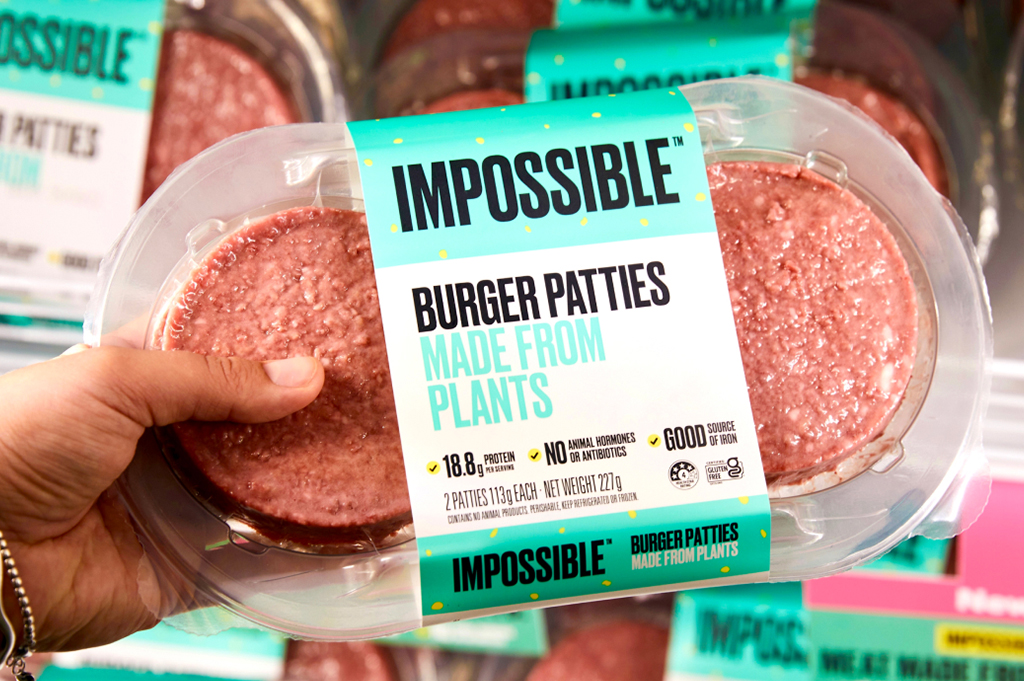
Good Time To Cultivate A Plant-Based Business
Plant-based business opportunities are sprouting up and there’s room for more.
Growing awareness of the relationship between food choices, health, and the global environment has given rise to a growing industry of plant-based foods. According to a 2021 survey on plant-based food consumption in Singapore by Rakuten Insight, 33% of respondents aged between 16 and 24 years said they consumed plant-based food several times a year. This movement is still in its infancy and is set to grow significantly.
Firstly, a diet that features plant-based foods with fish, poultry, eggs, cheese, and yogurt consumed a few times a week with meat has shown that in both large population studies and clinical trials to reduce the risk of heart disease, diabetes, certain cancers (specifically colon, breast, and prostate cancer), and depression.
Plant-based foods are also environmentally-friendly. For instance, plant-based beef needs about 85% less water, 95% less land, and contributes around 90% less greenhouse gas emissions than a burger made from cows. Figures may change slightly when considering plant-based pork, chicken and lamb but the evidence is clear — plant-based food is good for you and good for the world!
If you want a slice in this lucrative plant-based pie, take a leaf from these trailblazers.
The pioneers
Love Handle — known as Asia’s first plant-based butcher — started off as a bistro in 2017 with Executive Chef Addis Tan and friends at the helm. Those were still early days and before the term “plant-based” was a buzz word. The bistro then evolved into Love Handle Burgers after being bought over by Ebb & Flow Group. After which, its Butcher and Deli at Ann Siang Hill was set up. The next step was the development of an online distribution channel so that consumers could easily get plant-based meats, cheese, butter and condiments delivered through ‘lovehandle.sg’.

One of the major challenges Love Handle faced then was that there were many meat eaters who were interested in trying to add plant-based meats into their cooking rotation but were unsure how to go about it. In reality, most of the time it’s the same or even easier as compared to traditional ingredients. Love Handle’s solution was to display QR codes on the products. Scanning these codes allow access to video recipes that will show these home chefs easy ways to create some of their own delicious home-cooked plant-based meals.
Another challenge Love Handle had to cope with was consumers who were unsure that its products contain healthy ingredients. Although Love Handle already provided basic nutritional information on its digital platform, it decided to offer even more nutritional information. Consumers could then easily compare the plant-based products versus traditional alternatives.
By catering to its customers’ needs, Love Handle carved a niche for itself in the burgeoning plant-based foods sector. Soon, the competition heated up with other players coming on board
Nothing’s Impossible
Although Impossible Foods was incorporated in 2011 in the United States, it only arrived in Singapore in 2019. It created quite a bang with its powerful credentials having been founded by Dr Patrick O. Brown — a biochemistry professor at Stanford University School of Medicine.
It appears that while on sabbatical, Dr Brown concluded that exploiting animals for food is a major contribution to global warming and the principal driver of species extinction, deforestation and water pollution. He and a team of experts then went on to create meat, dairy, and fish without animal ingredients.
Mr Laurent Stevenart, Country Manager for Singapore & UAE for Impossible Foods, points out, “A quarter-pound Impossible Burger has 0 mg cholesterol, 14 grams of total fat and 240 calories, and as much bioavailable iron and protein as a comparable serving of ground beef from cows. A quarter-pound, conventional “80/20” patty from cows has 80 mg cholesterol, 23 grams of total fat and 290 calories.”
Shortly after its founding in 2011, Impossible Foods’ scientists discovered that one molecule — “heme” — is uniquely responsible for the explosion of flavours that result when meat is cooked. Impossible Foods’ scientists genetically engineer and ferment yeast to produce a heme protein naturally found in plants, called soy leghemoglobin.

The heme in Impossible Burger is identical to the essential heme in meat — and while the Impossible Burger delivers all the succulence of beef, it uses far fewer resources because it’s made from plants, not animals.
Eating healthier has also infiltrated the snacking sector and this is another booming business.
Rise of healthy ‘junk food’
Boxgreen was one of the first companies to jump on the healthy snacking bandwagon. As management consultants at DBS Bank in 2014, Mr Andrew Lim and Mr Walter Oh, its two co-founders would often work late into the night. Hunger would set in but eateries would be closed and they made do with the sugared or salted peanuts and chocolate bars from vending machines.

Realising that many others were in the same predicament, the duo set up a snack subscription website Boxgreen, offering vegetable chips and other healthy snacks. It was a huge success and inspired them to leave their banking careers a year later to work full-time on Boxgreen with a third partner with a technological background. Then, instead of simply continuing to curate healthy snacks from wholesalers and supermarkets, they decided to produce their own, focusing on making them fun and nutritious.
Join the ranks
The market is growing by leaps and bounds as more people realise the environmental consequences of eating meat and consuming dairy products. This does not mean people are jumping on the vegetarian or vegan bandwagon. Mr Ricky Parikh, Marketing Director at food distributor, Angliss, says, “Many of these consumers are incorporating perhaps three or four plant-based meals within a week.” He explains that these were the “flexitarians” or flexible vegetarians who happen to be in the fastest growing market segment.
Mr Stevenart says, “The animal agriculture industry is estimated to be greater than US$1.5 trillion and plant-based meat sales currently account for a fraction of this. We’ve seen dramatic growth in Singapore since our launch in March 2019, where we linked up with eight restaurant partners. Our products are now available at about 600 restaurants in Singapore – up by 230% since January 2020.”
“It is a very sustainable market,” concurs Mr Parikh. However, he advised entrepreneurs eyeing the plant-based food sector to think carefully about offering a strict plant-based menu or a hybrid selection which also features meat dishes. In his opinion, it’s wiser to offer more options to cater to a bigger market.


















